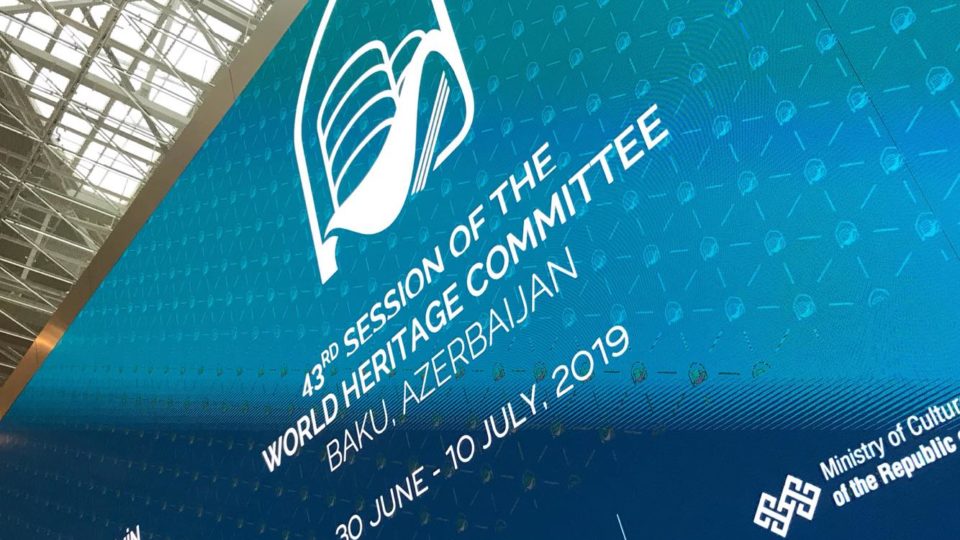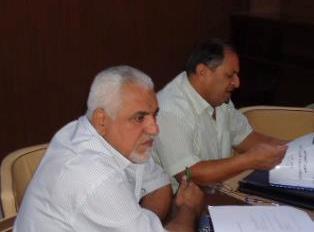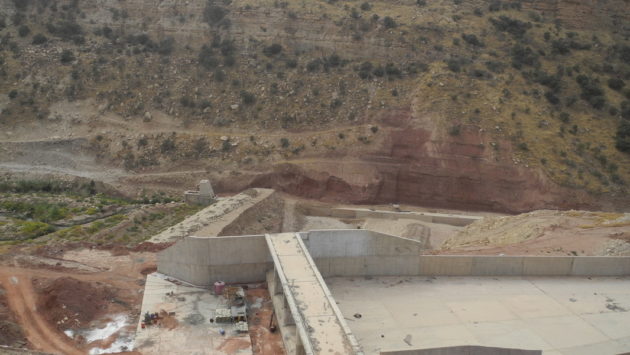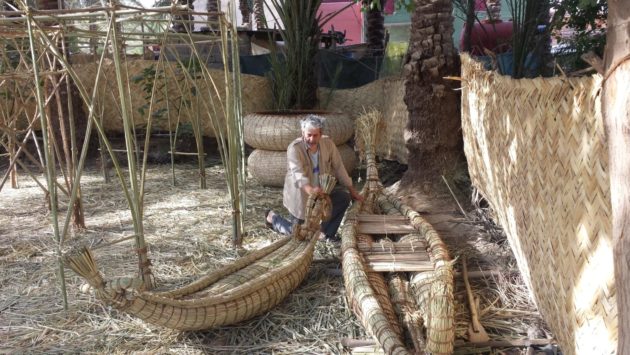UNESCO Should Address the Impacts of Upstream Dam Construction on the Ahwar of Iraq and Support Transboundary Water-Sharing Agreements
Press Statement by Save the Tigris Campaign
The following resolution submitted by Save the Tigris Campaign was adopted by the World Heritage Watch NGO Forum prior to the 43rd session of the UNESCO World Heritage Committee in Baku, Azerbaijan, 30 June – 10 July 2019.

The 7th International NGO Forum on World Heritage at Risk
Baku, Azerbaijan, 29 June 2019
UNESCO should address the impacts of upstream dam construction on the Ahwar of Iraq and support transboundary water-sharing agreements
We, the Civil Society Organizations who have attended the 7th International NGO Forum on World Heritage at Risk organized by World Heritage Watch on 29 June in Baku, Azerbaijan, coming from 21 countries in 5 continents, as active and concerned citizens dealing with Natural and Cultural World Heritage properties at different places, would like to bring the following to the attention of the World Heritage Committee:
The Ahwar of Iraq is a complex mixed natural and cultural site consisting of several locations in Southern Iraq. This year, the Iraqi government submitted its second State of Conservation Report to follow up on the implementation of the UNESCO requests and examinations as stated in Decision 42COM7B.66 of 2018. In its most recent Draft Decision 43.COM7B35 UNESCO is concerned that minimum water flows and water allocations for the Marshes, the natural component of the site, have not been met in the past 2 years. Nonetheless, none of the Draft Decision does not refer to the grave impacts of upstream dam construction on the Ahwar, leaving concerns that UNESCO underestimates the consequences.
1-Minimum Water Flows
The 2019 State of Conservation Report by the State Party confirms the amount of water delivered to the Ahwar in 2017 and 2018 was below the minimum flows identified for restoration according to the Strategy for Water and Land Resources in Iraq (SWLRI). The long-term future of the Marshes is threatened by lack of coherence in Iraq’s water strategy, particularly in relation to the impact of dams on current and future flows to the Marshes. The SWLRI states unambiguously that “no new large dams are required to assist Iraq in achieving its 2035 objectives.” The SWLRI recommends no further dams should be built in Iraq until agreements have been reached with upstream states on downstream flows. Yet the Kurdistan Regional Government (KRG) in its most recent masterplan envisions 18 dams being built in the Kurdistan Region, and the KRG has recently announced the construction of 3 dams in the Greater Zab basin. Such policy incoherence must be addressed if the State Party of Iraq is to meet the World Heritage Committee’s requirement that the minimum flows to the Marshes are maintained. Further upstream in Turkey, the Ilisu mega-dam project which is scheduled to start operating next month would threaten water flows to downstream areas including the Ahwar. Meanwhile Iran too over the years has built dozens of dams on tributaries of the Tigris River, diverting billions cubic metres of water.
2-Long-term water-sharing agreements
The World Heritage Committee in 43.COM7B35 “strongly encourages again the State Parties of Iraq, Iran and Turkey to continue their efforts in cooperating towards long-term sustainable water management […]”. The State Party of Iraq noted that there have been meetings and dialogues between Iraq and Turkey. No mention was made of any efforts to engage with Iran or the conclusions of any such engagements, if they took place. We would urge the World Heritage Committee to seek further tangible information from the State Parties of Iraq and Iran and make efforts to facilitate dialogue. We have reviewed the 2014 “Memorandum of Understanding in the Field of Water between the Ministry of Forestry and Water Affairs of the Republic of Turkey and the Ministry of Water Resources of the Republic of Iraq” which has not been ratified yet. We are concerned that while the memorandum commits the parties to equitable shares of water, it does not specifically address minimum water flows to the Ahwar, despite Iraq and Turkey being parties to the World Heritage Convention.
3-Water quality
It is not just the amount of water flowing into the Marshes that is important, but also its quality. We welcome steps taken by the State Party to better regulate oil developments in and around the Marshes, but salinity and other pollution due to irrigation projects and agricultural drainage continues to flow into the Marshes.
4-Engagement with civil society
In Draft Decision 43.COM7B35 UNESCO urges the State Party of Iraq to engage “meaningfully” with local communities using a “rights-based” approach to water management. The State Parties of Iraq, Turkey and Iran should be requested that populations directly affected by management of cultural and water resources should participate in the decision-making process.
The WHC is requested to;
A. Require the State Party of Iraq to publish its latest SWLRI as well at the Turkey-Iraq Memorandum in full and make it available for public comment;
B. Require the State Party of Iraq to undertake a basin-wide regional environmental assessment of existing and proposed dams on the Tigris-Euphrates Rivers and their tributaries, with a specific mandate of assessing future impact on flows to the Ahwar marshlands. The Regional Environmental Assessment (REA) should be conducted in compliance with the IUCN Guidance for World Heritage Environmental Assessments, with opportunities for public participation.
C. Request the State Party of Iraq to abstain from any new dam construction, including in the Kurdistan Region, until such a REA has been undertaken and its conclusions made public and reviewed by the World Heritage Center and IUCN.
D. Urge Turkey and Iran to uphold their commitments under the 1972 Convention Concerning the Protection of the World Cultural and Natural Heritage and the 1992 Convention on Biological Diversity, to guarantee sufficient water flows to sustain the natural ecosystem of the Ahwar.
E. Request the State Parties of Iraq, Turkey and Iran to specifically deal with minimum water flows in a binding legal agreement to sustain the Marshes.
F. Obtain firm assurances that no development will take place in the Marshes that would affect the quality of the water entering the Marshes such as pesticides and saline run-off from irrigated land.
Baku, 29 June 2019




